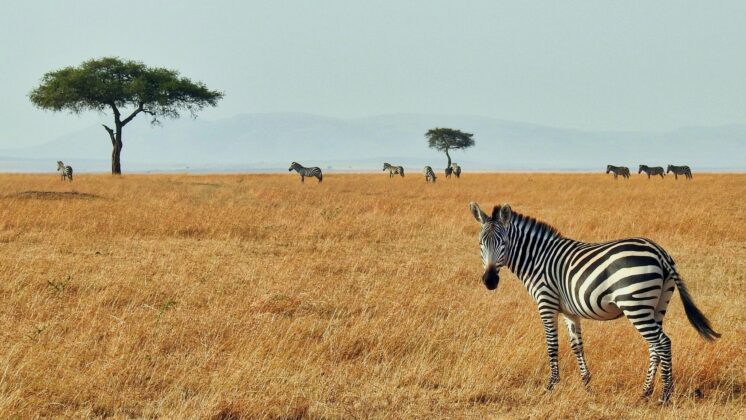As of July 20, 2020, the African continent had over 700,000 coronavirus cases. This is likely a dramatic undercount due to low testing across most of the continent. South Africa and Ghana alone account for more than 50% of tests.
While the media has focused much of its attention on the cost of the disease in Western Europe and the United States, it is developing countries which face the largest economic fallout. This crisis is an opportunity for developing countries to not only provide healthcare support, but to stimulate the global economy going forward.
3 Reasons Africa Is Sure to Suffer from Coronashock
Despite the media focusing elsewhere, there have been widespread calls for African debt relief, in particular from China, the largest sovereign creditor to Africa. Those who raise the alarm can see not only that Africa is in serious danger from coronavirus, but that the economic impact of that danger could be globally catastrophic.
With so many developing nations clustered together, Africa needs all the help it can get for three big reasons.
Firstly, most African countries do not have the fiscal space to pass stimulus packages. While many developed countries have spent between 10 and 20% of GDP on economic relief, African countries average below 1%. Even the biggest spenders, like South Africa and the Ivory Coast, have barely reached 5%. High existing levels of government debt mean African countries are spending on average six times more of their budget on debt interest payments than on healthcare.
Secondly, many African countries are highly dependent on remittances. Nigeria and Egypt are among the 10 largest recipients globally in absolute terms, and a number of smaller countries depend on remittances for more than 10% of economic output. In fact, remittances to developing countries are already three times larger than official development assistance (ODA) and are on course to outstrip ODA and foreign direct investment combined. COVID-19 lockdowns have dramatically reduced the flow of remittances to the continent, with estimates of a 23% decline in 2020.
Thirdly, COVID-19 has come at a time when tensions in the international community are politicizing developmental aid in some of Africa’s most important global partners. The United Kingdom has announced plans to merge its Department for International Development (DFID) with its Foreign Office, with Prime Minister Boris Johnson stating, “We give as much aid to Zambia as we do to Ukraine, though the latter is vital for European security. We give 10 times as much aid to Tanzania as we do to the six countries of the western Balkans, who are acutely vulnerable to Russian meddling.”
Similarly, the United States has threatened to review participation of individual African countries in its African Growth and Opportunity Act, which has critically allowed a number of African countries to maintain trade surpluses with the US.
With limited capacity to support themselves, less money coming in, and politics turning heads the other way, Africa faces the real possibility of being left to fend for itself.
However, there is a chance for business to fill this gap.

Setbacks for African Startups Spell Investor Opportunities
COVID-19 lockdowns have also created a huge drop in financing for African startups. A 40% ($800 million) drop is expected in financing for 2020.
On the bright side, this suggests many opportunities for developed country investors and VC firms to diversify their portfolios.
Foreign investment into African startups has been largely dominated by major US and European investors. Japanese investors have poured money into Indian startups, but have so far shown comparatively little interest in the African market, despite it regularly being described as the “final frontier” for startup investment.
Now is the time for Japanese investors to catch up, thanks to a dramatic shift in Japanese corporate attitudes towards working from home.
Fujitsu recently announced a plan to halve its office space and offer a permanent remote work program for its 80,000 Japanese employees. Such a major shift creates an unprecedented chance for investment into markets once considered too distant or too risky.
We can already see this trend emerging among US and European investors: Amazon recently advertised for over 3,000 remote work positions in South Africa. The whole world will soon start exploring innovative business models unlocked through remote work. Japan is well positioned to be a first mover from the Asia side.
Investment in Africa Comes with Much-Needed Social Impact
Unable to maintain a strict lockdown, developing countries have been forced to make a choice between controlling the spread of infection and risking economic destitution for large sections of their population. Japan, along with other industrialized nations, has a key role to play in resolving this crisis, both through ODA and mobilization of its private sector.
Japan has a long history of public health interventions in Africa with strong social impact. In Ghana, the second largest tester for coronavirus on the continent after South Africa, 80% of PCR tests have been conducted at the Noguchi Memorial Institute for Medical Research. Established with the support of the Japanese International Cooperation Agency (JICA), the institute has rapidly emerged as a regional center of excellence for medical and infectious disease research. This success—and the strong reputation that comes with it—has led to private sector donations, supporting the case for a “Japan model” of public-private partnership on the African continent.
As stated by the former president of Liberia, Ellen Johnson Sirleaf, “Coronavirus anywhere is a threat to people everywhere.” Until coronavirus comes under control, there remains a constant threat of resurgence. Japan has a critical role to play as a leader in this fight and the subsequent economic revival.



